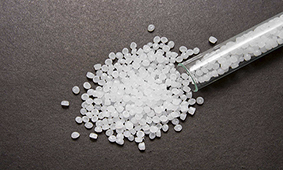
Indian polymer demand continues to fall amid lockdown

Authorities are allowing deliveries of raw materials for the production of essential goods. But truck deliveries of polypropylene (PP) to converters' warehouses are coming to a halt because of travel restrictions applied since the 25 March lockdown started. Logistics companies also face a shortage of truck drivers. PP is widely used in India in the packaging of food such as rice, flour and sugar.
Domestic PP producers unable to deliver PP resins have been left with little choice but to cut operating rates or shut their plants because of rising inventories.
India's state-controlled MRPL shut its 440,000 t/yr PP plant at Mangalore on the west coast after last week's lockdown. Fellow state-controlled refiner IOC has also shut its 700,000 t/yr PP plant at Paradip in east India, which started up in phases last year.
PP raffia prices on 26 March fell by $10/t from a week earlier at $880-920/t cfr, Argus data showed.
Polyethylene (PE) producers face similar transportation restrictions and a slowdown in domestic trade.
India's state-controlled Opal is reducing operating rates at its high-density polyethylene (HDPE) and linear low-density polyethylene (LLDPE) production lines. Opal has a 1.1mn t/yr cracker at Dahej in west India's Gujarat state.
Indian private-sector refiner Reliance Industries is currently maintaining operations at its PE units in Gujarat.
LLDPE film prices in India were $790-830/t cfr on 26 March, down by $10/t from the previous week, according to Argus data.
A freefall in Asia ethylene values, a bearish factor, is limiting spot trade in the country.
Ethylene spot prices in northeast Asia yesterday fell to an 11-year low at $450-500/t cfr northeast Asia, $50-60/t lower than Argus assessed prices on 25 March.
By Muhamad Fadhil and Yee Ying Ang


Trump weighs using $2 billion in CHIPS Act funding for critical minerals

Codelco cuts 2025 copper forecast after El Teniente mine collapse

Electra converts debt, launches $30M raise to jumpstart stalled cobalt refinery

Barrick’s Reko Diq in line for $410M ADB backing

Abcourt readies Sleeping Giant mill to pour first gold since 2014

Nevada army depot to serve as base for first US strategic minerals stockpile

SQM boosts lithium supply plans as prices flick higher

Viridis unveils 200Mt initial reserve for Brazil rare earth project

Tailings could meet much of US critical mineral demand – study

Kyrgyzstan kicks off underground gold mining at Kumtor

Kyrgyzstan kicks off underground gold mining at Kumtor

KoBold Metals granted lithium exploration rights in Congo

Freeport Indonesia to wrap up Gresik plant repairs by early September

Energy Fuels soars on Vulcan Elements partnership

Northern Dynasty sticks to proposal in battle to lift Pebble mine veto

Giustra-backed mining firm teams up with informal miners in Colombia

Critical Metals signs agreement to supply rare earth to US government-funded facility

China extends rare earth controls to imported material

Galan Lithium proceeds with $13M financing for Argentina project

Kyrgyzstan kicks off underground gold mining at Kumtor

Freeport Indonesia to wrap up Gresik plant repairs by early September

Energy Fuels soars on Vulcan Elements partnership

Northern Dynasty sticks to proposal in battle to lift Pebble mine veto

Giustra-backed mining firm teams up with informal miners in Colombia

Critical Metals signs agreement to supply rare earth to US government-funded facility

China extends rare earth controls to imported material

Galan Lithium proceeds with $13M financing for Argentina project

Silver price touches $39 as market weighs rate cut outlook

















